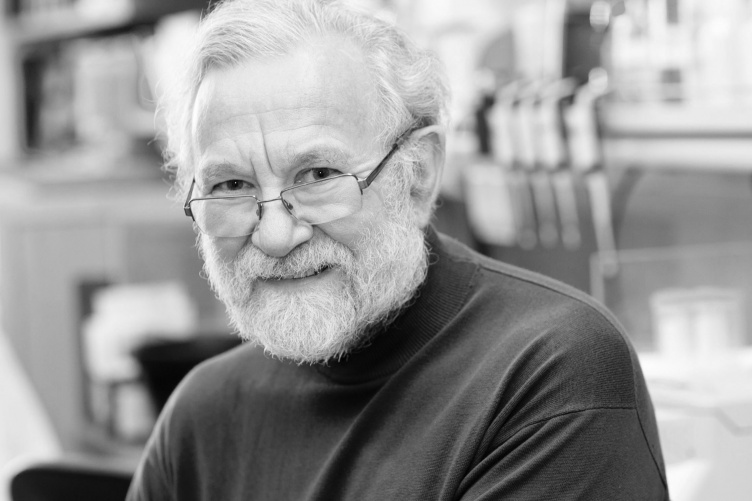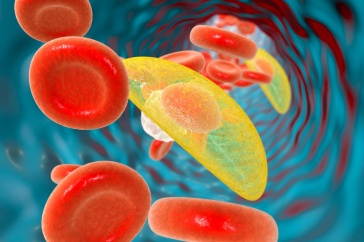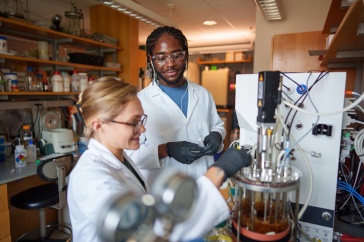
Distinguished scientist and educator Peter Walter
UNH's Center of Integrated Biomedical and Bioengineering Research and the Department of Molecular, Cellular and Biomedical Sciences (MCBS) will be hosting distinguished scientist, Peter Walter, PhD, next week as part of the MCBS department seminar series.
Topic: From Protein Folding to Cognition: The Seredipitous Path of Discovery
When & Where: Friday, October 25, 12:10-1:00 p.m. in Parsons Hall N104
Dr. Walter is a leading researcher in his area and has an impressive list of honors and awards to his name, including the distinction of being a Howard Hughes Medical Institite (HHMI) investigator and member of the National Academies. He will be presenting a discussion on advances in his lab’s efforts to understand the molecular details of the unfolded protein response (UPR), a conserved signaling network that surveys the protein folding status in the endoplasmic reticulum.
From its birth in the cradle of the ribosome to its demise in the fangs of proteolytic enzymes, a protein continuously explores different folding states. In most cell compartments, molecular sensors carefully monitor protein folding and instruct down-stream effectors to take corrective actions as needed. In response, cells can make adjustments to their protein folding and degradation machineries to stay in a healthy state of homeostasis. If protein folding defects occur and cannot be corrected in a sufficient and timely manner, cells induce suicide programs.
Programmed cell death is thought to protect an organism from malfunctioning rogue cells that result from an accumulation of defective protein. In various pathologies, the life/death balance can inappropriately err on either side: killing cells that would be beneficial if kept alive, or alternatively, inappropriately protecting dangerous, disease propagating cells. Studies of the regulation of proteostasis now emerge as focal points of foundational basic research that powerfully connects to a wide spectrum of unmet clinical needs.
As a part of the seminar, Dr. Walter will discuss advances in his lab’s efforts to understand the molecular details of the unfolded protein response (UPR), a conserved signaling network that surveys the protein folding status in the endoplasmic reticulum. The UPR signals through three molecularly distinct branches. The development of small, drug-like molecules that selectively target each of the UPR’s signaling branches has opened promising new therapeutic opportunities in areas as divergent as cancer, neurodegeneration, diabetes, inflammation, aging, and cognition. As such, the UPR emerges as a prime example of the power of fundamental cell biological discoveries to address problems of immense societal impact.
“Dr. Walter is the most highly achieved cell biologist with contributions that have opened several exciting fields in biological research,” says Associate Professor Feixia Chu. “He is also a strong supporter and advocate of open access publication and science education, serving on the editorial board for Public Library of Science Biology journals and textbook Molecular Biology of the Cell.”
Dr. Walter is a Distinguished Professor of Biochemistry and Biophysics at the University of California, San Francisco. He graduated from the Free University of Berlin in 1976, and received his Masters of Science in organic chemistry from Vanderbilt University in 1977. In 1981, he obtained his doctorate in biochemistry at The Rockefeller University. In 1983, he joined the faculty of the Department of Biochemistry and Biophysics at the University of California at San Francisco, and served as department chair from 2001 until 2008. His awards include the Eli Lilly Award, the Passano Award, the Wiley Prize, the Stein & Moore Award, the Gairdner Award, the E.B. Wilson Medal, the Otto Warburg Medal, the Jung Prize, the 2012 Ehrlich and Darmstaedter Prize, the 2014 Shaw Prize, the 2014 Lasker Award, the 2015 Vilcek Prize and the 2018 Breakthrough Prize.
















































